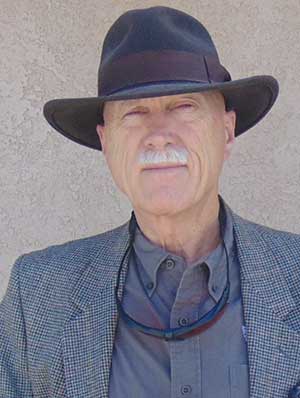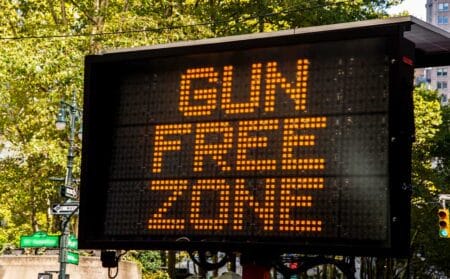
By Dean Weingarten

Arizona -(Ammoland.com)- The Australian gun law requires two things that are often cited as “common sense” by those without an understanding of everyday gun use.
They are universal gun registration and “safe storage”. Both have been weaponized against gun owners in Australia. They are an object lesson of what to avoid for those fighting for the right to arms in America and elsewhere.
Registration does nothing to prevent crime. Both New Zealand and Canada had extensive gun registration schemes similar to Australia’s. Both concluded that gun registration is costly and not effective in preventing crime. Both repealed their gun registration schemes in favor of gun owner registration systems.
In the Canadian and New Zealand systems, once a gun owner is cleared to own guns, they can own guns without a problem. Guns can easily be transferred among legal gun owners and gun shops.
Pistols are restricted much more than long guns in all three countries.
In Canada, pistols have been registered for 80 years. In that period, there was only one ambiguous case where registration might have helped solve a crime.
In Australia, the registration system is dangerous and cumbersome for the gun owner. Only the person who registered the gun may use the gun. An exception is made for people who are in the presence of the gun owner.
A gun may be borrowed or loaned to another person for a hunting trip or for vermin control, or simply to try out, if the person the gun is loaned to has the proper license for that category of guns. If the gun is to be transferred for more than 14 days, the police have to be notified of the new “safe storage” location.
Only the gun owner is allowed to have access to the metal safe the gun owner is required to store the guns in.
Donald Eykamp, above, was diagnosed with cancer shortly after his guns were impounded. He beat the odds after a long hospital stay, extreme radiation treatments, and borderline chemotherapy. It is difficult and dangerous for him to walk. Falling could be fatal. He tires easily.
If he had his guns, they would have to be locked up except when he was using them. If he saw a wild pig rooting in the crops, he could not have his assistant get a rifle for him. If the safe were left open, it would be in violation of the law. Most of the charges against him are for “unsafe storage” because he briefly left two of his safes open, while living alone at his farm.
Another person is not allowed the combination to a safe or access to a key; that would be a violation. If the other person were a licensed gun owner, it may be permissible for a person with the same level of license as the gun owner. A husband cannot allow his wife the combination to his gun safe, unless she is a licensed gun owner who has the same level of license that he has.
Only licensed firearms dealers are allowed to manufacture, repair, or alter firearms or firearms parts.
It is seductive in Australia to circumvent the irrational law. That lays legal traps for the gun owner that can have severe consequences.

In Donald Eykamp’s case, $150,000 of his guns are still in police custody while the case is appealed. 18 highly valued rifles and shotguns were in a locked safe when he was raided. Those guns were allowed to be stored with a gun shop after Donald’s fines were paid, by order of the court. The gun shops are legally liable for guns stored by owners, and charge a fee for storage.
The minimum fee offered Donald for storage was $35 per gun per week. Donald’s case has been ongoing for over 100 weeks. That would be storage fees of $3500 per gun! Some of Donald’s guns are worth more than that. Donald’s case will set precedent.
Few Australians contest a case involving gun storage. The value of the guns would quickly be eroded. The guns have to stay in storage until a transfer is approved. Guns are tied to a single person when registered to them. They may be stored by another registered gun owner, if the other owner has the same level of license. If the storage is for more than 14 days, the police must be notified.
In Donald’s case, his long relationship with a custom gunsmith allowed for a negotiated solution. Donald purchased a $900 gun safe for the legal storage of his guns in the gun smith’s shop. When the guns are gone from the shop, the safe will become the property of the gunsmith. As of this date, Donald’s guns are still being transferred from that safe.
In Australia, the combination of universal registry of legal guns and the extreme “safe storage” law puts gun owners at legal risk. The interpretation of the law varies widely with individual law enforcement officers. It is a prescription for the disaster that happened to Donald Eykamp. The case is under appeal. The results are expected in the next few weeks.
©2017 by Dean Weingarten: Permission to share is granted when this notice is included.
About Dean Weingarten:
Dean Weingarten has been a peace officer, a military officer, was on the University of Wisconsin Pistol Team for four years, and was first certified to teach firearms safety in 1973. He taught the Arizona concealed carry course for fifteen years until the goal of constitutional carry was attained. He has degrees in meteorology and mining engineering, and recently retired from the Department of Defense after a 30 year career in Army Research, Development, Testing, and Evaluation.






Gun owners in the U.S., have a care, actually have several cares, lest your gun rights go the way they have gone elsewhere, that is where the law abiding citizen had any such rights to begin with, down that well known toilet.
A “registered” firearm facilitates government confiscation.
A “safely stored” firearm is useless when it is most needed.
Sounds like the same B.S. they are trying to pull here in the U.S.A. The only people to have guns are POLICE(only to clean up ,after the crime) The Thug (could care less about the law) And (let us not forget) the Gov Law Makers . Most of these know NOTHING about firearms and have ARMED security around. ex. THE X Mayor of N.Y.C
Bear in mind there is no single national “Australian” gun law, there are interstate agreements but gun laws are made primarily at the State and Territorial level (although there are customs laws which have been used in increasingly silly ways), so there are significant differences from State to State. Not too sure about the comment about not being able to make your own gun or altering it, you usually can if you’ve registered it, possibly it’s not legal in some places. One of the most maddening things is the requirement to get a “transportation” or import permit to travel to… Read more »
Common-sense does not automatically infer that something is “Sensible’.
Whenever you hear a Leftist of any stripe use the word ‘Sensible’ you know it’ll be anything but.
Commonsense is nonsense
So what happened to the article about “having to take dad’s guns?” Into thin air, like it was never there.